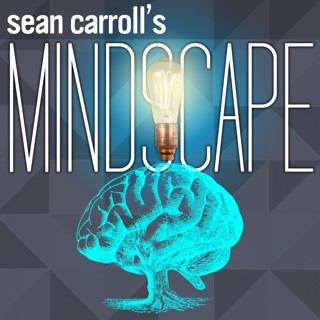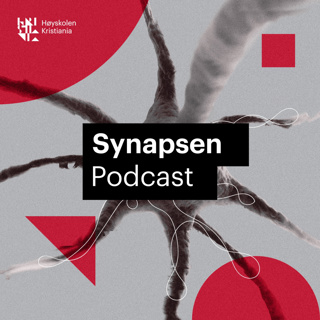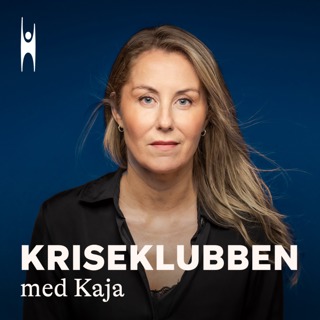
AMA | August 2021
Welcome to the August 2021 Ask Me Anything episode of Mindscape! These monthly excursions are funded by Patreon supporters (who are also the ones asking the questions). I take the large number of questions asked by Patreons, whittle them down to a more manageable size — based primarily on whether I have anything interesting to say about them, not whether the questions themselves are good — and sometimes group them together if they are about a similar topic. Enjoy!Support Mindscape on Patreon.See Privacy Policy at https://art19.com/privacy and California Privacy Notice at https://art19.com/privacy#do-not-sell-my-info.
12 Aug 20213h 11min

159 | Mari Ruti on Lack, Love, and Psychoanalysis
Neuroscience has given us great insights into how our brains work. But there is still room for purely humanistic disciplines to help us think through our thoughts and emotions, not to mention the meaning of our lives. Mari Ruti is a professor of English literature, with expertise in critical theory, gender studies, and psychoanalysis, especially the work of French theorist Jacques Lacan. We talk about the psychological drive that is motivated by what Lacan calls “lack,” which is related to “desire.” We use this as a way to think about such essential human experiences as mourning, creativity, and love. (We don’t talk about love enough here on the podcast.)Support Mindscape on Patreon.Mari Ruti received her Ph.D. in comparative literature from Harvard University. She is currently a Distinguished Professor of critical theory and gender and sexuality studies at the University of Toronto. She is the co-editor of the Psychoanalytic Horizons book series for Bloomsbury.U Toronto web pageAmazon.com author pageSemantic scholarWikipediaTwitterSee Privacy Policy at https://art19.com/privacy and California Privacy Notice at https://art19.com/privacy#do-not-sell-my-info.
9 Aug 20211h 49min

158 | David Wallace on the Arrow of Time
The arrow of time — all the ways in which the past differs from the future — is a fascinating subject because it connects everyday phenomena (memory, aging, cause and effect) to deep questions in physics and philosophy. At its heart is the fact that entropy increases over time, which in turn can be traced to special conditions in the early universe. David Wallace is one of the world’s leading philosophers working on the foundations of physics, including space and time as well as quantum mechanics. We talk about how increasing entropy gives rise to the arrow of time, and what it is about the early universe that makes this happen. Then we cannot help but connecting this story to features of the Many-Worlds (Everett) interpretation of quantum mechanics.Support Mindscape on Patreon.David Wallace received a D.Phil. in Physics and a D.Phil. in Philosophy from Oxford University. He is currently W.A. Mellon Professor of Philosophy of Science, with joint appointments in the Philosophy Department and the Department of History and Philosophy of Science, at the University of Pittsburgh. He is the author of The Emergent Multiverse: Quantum Theory According to the Everett Interpretation. Among his honors are the Lakatos Award for outstanding contribution to the philosophy of science. His most recent book is Philosophy of Physics: A Very Short Introduction.Web sitePhilPeople profileGoogle Scholar publicationsAmazon.com author pageSee Privacy Policy at https://art19.com/privacy and California Privacy Notice at https://art19.com/privacy#do-not-sell-my-info.
2 Aug 20211h 47min

157 | Elizabeth Strychalski on Synthetic Cells and the Rules of Biology
Natural selection has done a pretty good job at creating a wide variety of living species, but we humans can’t help but wonder whether we could do better. Using existing genomes as a starting point, biologists are getting increasingly skilled at designing organisms of our own imagination. But to do that, we need a better understanding of what different genes in our DNA actually do. Elizabeth Strychalski and collaborators recently announced the construction of a synthetic microbial organism that self-reproduces just like a normal unicellular creature. This work will help us understand the roles of genes in reproduction, one step on the road to making DNA molecules and artificial cells that will perform a variety of medical and biological tasks.Support Mindscape on Patreon.Elizabeth Strychalski received her Ph.D. in physics from Cornell University. She is the founder and current leader of the Cellular Engineering Group at the National Institute of Standards and Technology. She serves on the steering group for the Build-A-Cell collaboration.NIST web pageGoogle Scholar publicationsTalk on Controlling Biology with Complexity“Genetic requirements for cell division in a genomically minimal cell,” Pelletier et al.See Privacy Policy at https://art19.com/privacy and California Privacy Notice at https://art19.com/privacy#do-not-sell-my-info.
26 Jul 20211h 17min

156 | Catherine D’Ignazio on Data, Objectivity, and Bias
How can data be biased? Isn’t it supposed to be an objective reflection of the real world? We all know that these are somewhat naive rhetorical questions, since data can easily inherit bias from the people who collect and analyze it, just as an algorithm can make biased suggestions if it’s trained on biased datasets. A better question is, how do biases creep in, and what can we do about them? Catherine D’Ignazio is an MIT professor who has studied how biases creep into our data and algorithms, and even into the expression of values that purport to protect objective analysis. We discuss examples of these processes and how to use data to make things better.Support Mindscape on Patreon.Catherine D’Ignazio received a Master of Fine Arts from Maine College of Art and a Master of Science in Media Arts and Sciences from the MIT Media Lab. She is currently an assistant professor of Urban Science and Planning and Director of the Data+Feminism Lab at MIT. She is the co-author, with Lauren F. Klein, of the book Data Feminism.Web siteMIT web pageGoogle Scholar publicationsData + Feminism LabWikipediaTwitterSee Privacy Policy at https://art19.com/privacy and California Privacy Notice at https://art19.com/privacy#do-not-sell-my-info.
19 Jul 20211h 28min

155 | Stephen Wolfram on Computation, Hypergraphs, and Fundamental Physics
It’s not easy, figuring out the fundamental laws of physics. It’s even harder when your chosen methodology is to essentially start from scratch, positing a simple underlying system and a simple set of rules for it, and hope that everything we know about the world somehow pops out. That’s the project being undertaken by Stephen Wolfram and his collaborators, who are working with a kind of discrete system called “hypergraphs.” We talk about what the basic ideas are, why one would choose this particular angle of attack on fundamental physics, and how ideas like quantum mechanics and general relativity might emerge from this simple framework.Support Mindscape on Patreon.Stephen Wolfram received his Ph.D. in physics from Caltech. He is the founder and CEO of Wolfram Research, and the creator of Mathematica, Wolfram|Alpha, and the Wolfram Language. Among his awards are a MacArthur Fellowship. Among his books is A New Kind of Science. He recently launched the Wolfram Physics Project.Web siteWolfram ResearchTalk on Computation and Fundamental PhysicsAmazon.com author pageWikipediaTwitterSee Privacy Policy at https://art19.com/privacy and California Privacy Notice at https://art19.com/privacy#do-not-sell-my-info.
12 Jul 20212h 40min

AMA | July 2021
Welcome to the July 2021 Ask Me Anything episode of Mindscape! These monthly excursions are funded by Patreon supporters (who are also the ones asking the questions). I take the large number of questions asked by Patreons, whittle them down to a more manageable size — based primarily on whether I have anything interesting to say about them, not whether the questions themselves are good — and sometimes group them together if they are about a similar topic. Enjoy!Support Mindscape on Patreon.See Privacy Policy at https://art19.com/privacy and California Privacy Notice at https://art19.com/privacy#do-not-sell-my-info.
9 Jul 20213h 48min

154 | Reza Aslan on Religion, Metaphor, and Meaning
Religion is an important part of the lives of billions of people around the world, but what religious belief actually amounts to can vary considerably from person to person. Some believe in an anthropomorphic, judgmental God; others conceive of God as more transcendent and conceptual; some are animists who attribute spiritual essence to creatures and objects; and many more. I talk with writer and religious scholar Reza Aslan about his view of religion as a vocabulary constructed by human beings to express a connection with something beyond the physical world — why one might think that, and what it implies about how we should go about living our lives.Support Mindscape on Patreon.Reza Aslan received his Ph.D. in sociology from the University of California, Santa Barbara. He is currently a professor of creative writing at the University of California, Riverside. He is the author of numerous books, including No God but God: The Origins, Evolution, and Future of Islam; Zealot: The Life and Times of Jesus of Nazareth; and God: A Human History. He has also worked in television, producing and writing documentaries, and serving as a consulting producer for the drama series The Leftovers. He recently started a podcast, Metaphysical Milkshake, with actor Rainn Wilson.Web siteUCR web pageAmazon.com author pageWikipediaTwitterIMDb profile pageSee Privacy Policy at https://art19.com/privacy and California Privacy Notice at https://art19.com/privacy#do-not-sell-my-info.
5 Jul 20211h 25min





















